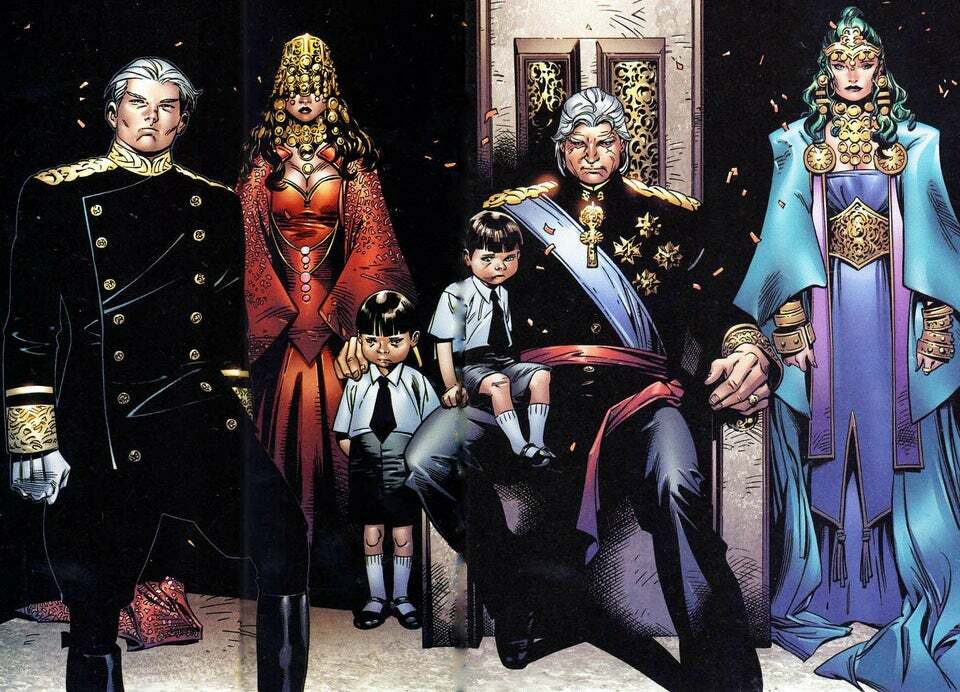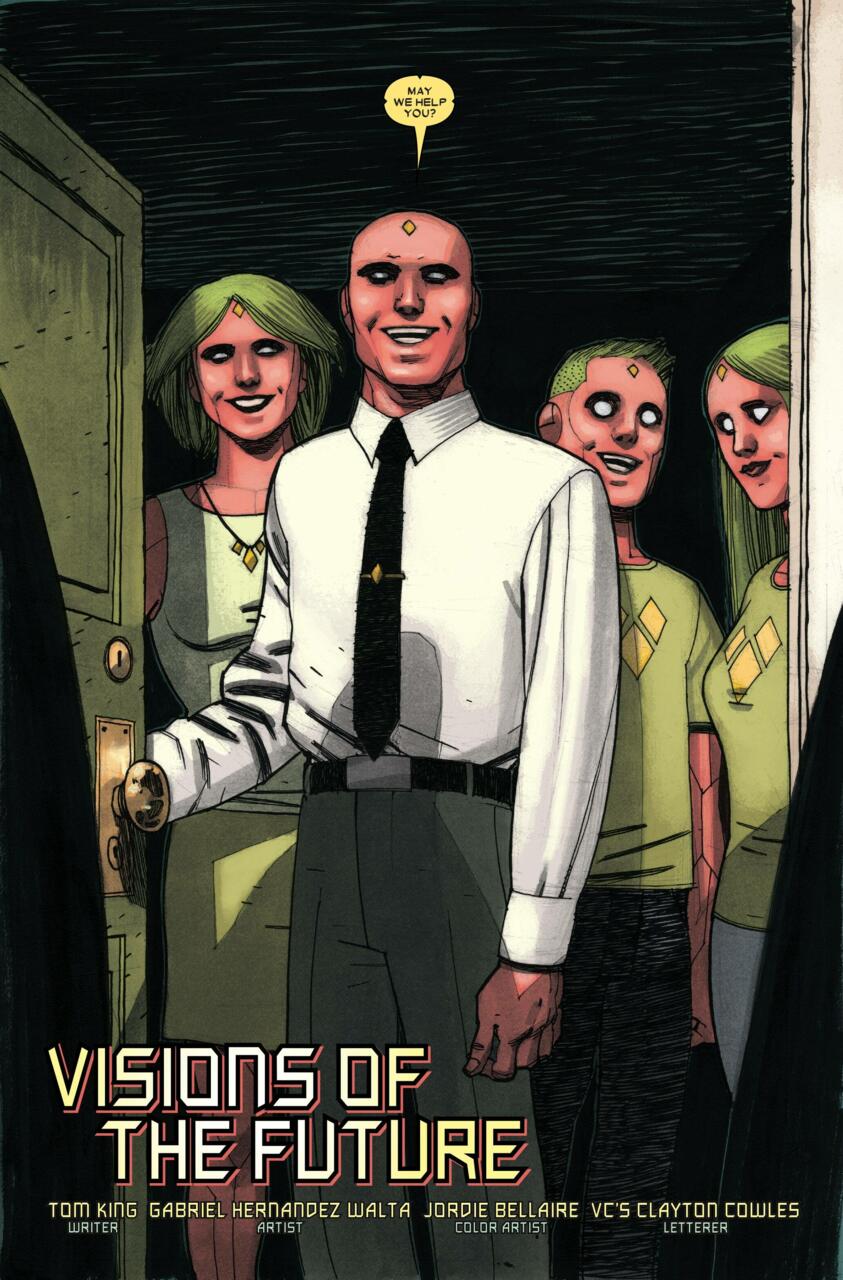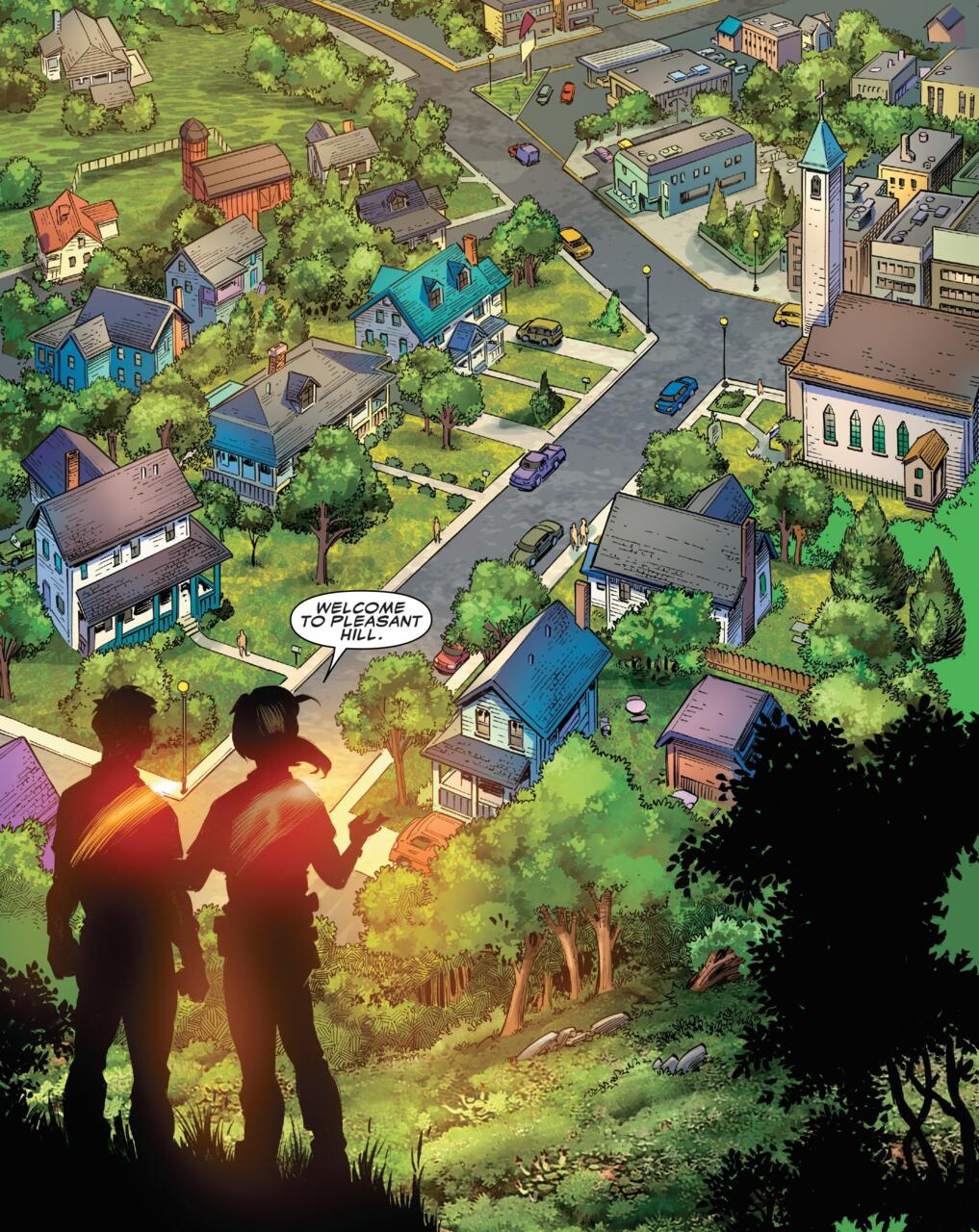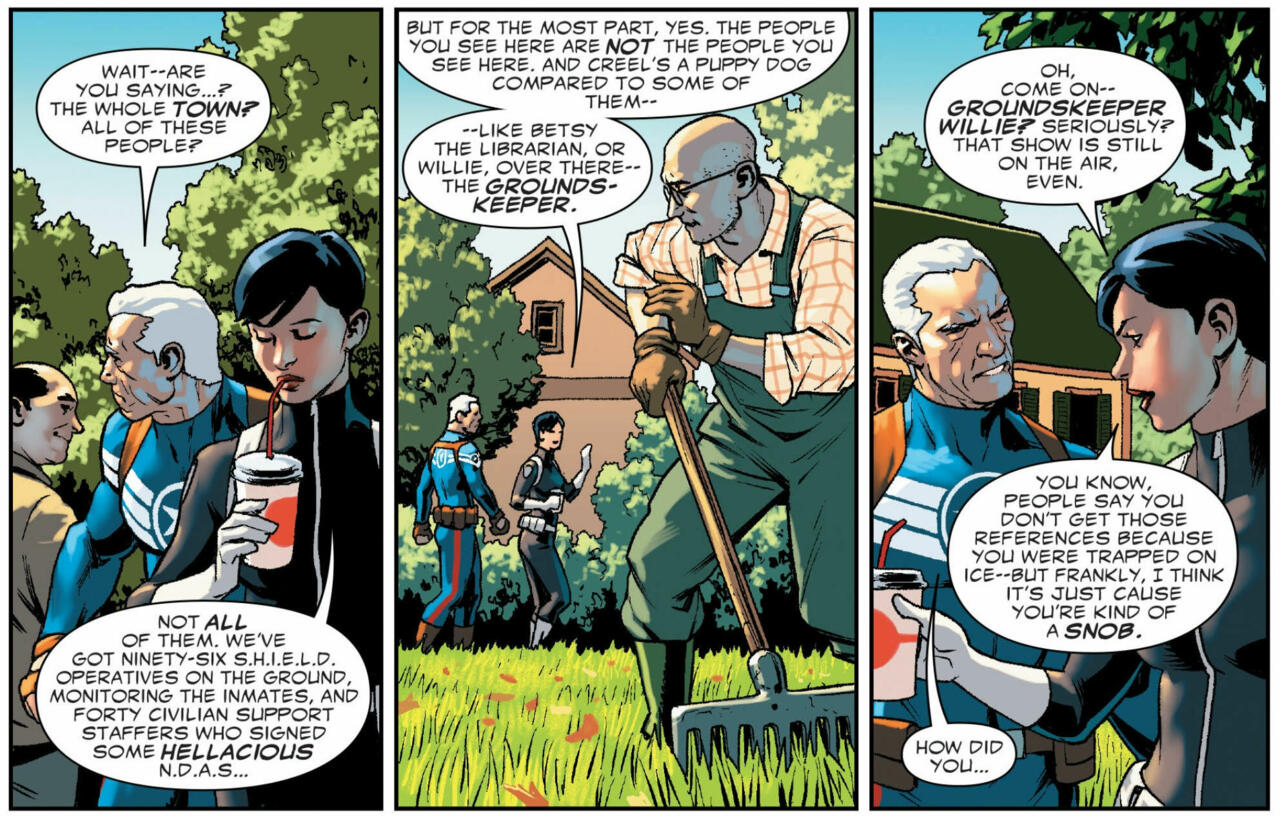WandaVision: Is There A Secret Hidden In This Unexpected Comic?
WandaVision is a surreal new entry into Phase 4 of the MCU, but it might not be directly inspired by House of M.
As the Marvel Cinematic Universe continues to grow and evolve, it gets harder and harder to find direct correlations between the shows and movies, and the comics that inspire them--and that's not necessarily a bad thing. One of the strongest and most interesting things the MCU has brought to the table over the last decade is its twists on comic book storylines that ought to be very old hat to certain fans. From the early days of Iron Man 3's surprise Mandarin fake-out to the completely unique take on the Civil War storyline, the MCU's tendency to remix source material shows absolutely no signs of going away or slowing down any time soon.
This presents us with an interesting challenge for a show like WandaVision, however--not only is it the first Disney+ streaming MCU show and the first official entry into the much-delayed Phase 4, it's also the first of its kind in a purely narrative sense. Put simply, we have absolutely no idea what's going on here, why it's happening, how it's happening, or what it means for anything--even after the debut of the first two episodes, we've been left with more questions than ever and no answers for any of them. So, we're left to return to our tried and true roots: wild speculation and theories.
And, for the MCU, the best place to start brewing these sorts of hypotheses is the comics--even if that means bringing an innate understanding that we're definitely not going to be dealing with a one-to-one conversion from page to screen.
The Low Hanging Fruit: Vision and House of M
Early on during the WandaVision press cycle, when concept images and vague premises were all that were available, there were two books that fans continued to reference time and time again when trying to get a grasp on what they might be in for: Tom King and Gabriel Walta's 12-issue limited series simply called Vision, and the 8-issue miniseries House of M by Brian Michael Bendis and Olivier Coipel. It's pretty obvious why that is when you take one look at them both.
In House of M, Wanda's reality-warping powers spiral out of control and create an alternate reality where Magneto and his extended family rule mutant kind. It's one in a long line of stories dealing with the "threat" of having a person like Wanda lose control--and it generally meets the concept of a surreal-yet-familiar alternate dimension where (almost) no one seems to know or remember that they're not living in the "real world" head on.

However, looking at the first two episodes of WandaVision a bit closer make the House of M parallels a bit harder to pick out--aside from the fact that it is most certainly not the "real" world, there's very little to establish that Wanda herself is generating it. After all, why would a Sokovian 20-something be this deeply invested in a spot-on recreation of American pop culture tropes that predate her own birth by decades? And why would there be a disembodied voice asking her to explain who is "doing this" to her?
Of course, elements of House of M could be borrowed and repurposed as the MCU is wont to do--but there might be a more streamlined inspirational link to the comics that would require a bit less retrofitting. More on this in a second.
For Vision, not only is it the most recent Vision solo series Marvel's put out, it literally deals with Vision settling down into a quietly surreal suburban life, trying to blend in like a normal human with a normal human family.
The family in this case is a group of synthezoid robots he's created, of course, complete with a green, artificial dog--and the dream of suburban bliss obviously doesn't last long--but the aesthetic sensibilities are all still there, on the surface. It's just that, in Vision the series, Vision and his fake family aren't living through any sort of alternate reality or retro-future. They're also not directly involved with Wanda herself (though she does play a major role in the story later on).

So, while the stylistic elements and some themes from Vision are likely to crop up in WandaVision, it's unlikely that it's the book to look at in terms of actually cracking the case--after all, WandaVision's story seems to be literally occurring in a sitcom-inspired version of the past, right down to the costumes and the dialogue. This isn't a show about Wanda and Vision escaping the superhero life to go live in a quaint little neighborhood outside of Washington DC--there's something much more insidious (and likely supernatural, or technological) at play.
Thankfully, this is a premise that isn't entirely foreign in recent Marvel history--if you know where to look.
The Dark Horse: Avengers: Standoff
On the surface, the Avengers: Standoff doesn't seem like a very viable candidate to inspire a show about Wanda or Vision--neither of them are featured players in the event. It revolves almost exclusively around Captain America-adjacent heroes like Bucky Barnes and B and C list villains pulled from various Thunderbolts rosters, but hear me out for a second.
The premise of Avengers: Standoff is (relatively) simple. It revolves around SHIELD's Maria Hill, functioning as Director, using a Cosmic Cube project to create a sort of "alternate reality" prison for villains called Pleasant Hill. Using the Cosmic Cube (made sentient and turned into a child named Kobik) Hill was able to functionally re-write the memories, appearances, and personal histories of anyone she saw fit, placing them into a constructed, idyllic town where they could go about their daily lives believing themselves to be just regular, everyday citizens.

Of course, they couldn't leave Pleasant Hill and the Truman Show-style theatricality of it wasn't always perfect--but it largely did the job, at least until people started to realize just how well and truly insidious the whole thing was while some of Pleasant Hill's most "clever" (read: evil) residents began to wake up and understand something was very, very wrong with their reality.
So what does this have to do with WandaVision? Well, possibly nothing--the MCU's version of the Cosmic Cube, the Tesseract, is one of the Infinity Stones and doesn't function the same way it does in the comics. It's very unlikely that a character like Kobik is going to make a big screen debut, and it's similarly unlikely that Maria Hill is going to get such a dramatic heel turn any time soon--especially with Nick Fury still around.
However.
We can intuit from the first two episodes of WandaVision that someone is "doing" something to Wanda--"who's doing this to you?" is a question that seems to disrupt this strange version of reality over and over again. And it doesn't take a genius to realize that there's something out of sorts with everything else about Westview, and we know from the end of episode 1 that someone working with the organization SWORD is surveilling Wanda and Vision by "watching" their "TV show."

It's impossible to tell whether or not SWORD is behind the strange break in reality or if they're trying to solve it, not to mention whether Wanda is a victim, like the question "who's doing this to you?" seems to imply, or the source of Westview all together. But if we look at Avengers: Standoff as a possible blueprint, and fudge some of the more nitpicky details--say, adjusting SHIELD and Maria Hill for either SWORD or HYDRA (both seem to have a presence in this reality one way or another) and Kobik's reality-warping abilities for Wanda and her own--we might just be on to something.
After all, in Captain America: Civil War, the question as to whether or not someone as powerful as Wanda should be trusted to just roam the streets was posed and never directly answered--Thanos interrupted any possible resolution to that story with the snap. But now that the world is, presumably, returning to mostly normal, Wanda's still an issue that needs to be dealt with. And if we reflect back to Wanda's MCU origin in Age of Ultron, we can confirm that an organization like HYDRA is not only aware of her existence, but keenly aware of her abilities.
And what better way to imprison a person with functionally unlimited power than by making them believe they're somewhere they actually want to be?
The bigger question becomes: If Westview is the MCU's version of Pleasant Hill with a more villainous twist, are Wanda and Vision's neighbors prisoners, too? What about Vision himself--is he simply a construct of whatever reality they're living in, or was his consciousness somehow preserved after the events of Avengers: Infinity War? Or is there something even more devious going on under the surface?
Got a news tip or want to contact us directly? Email news@gamespot.com
Join the conversation